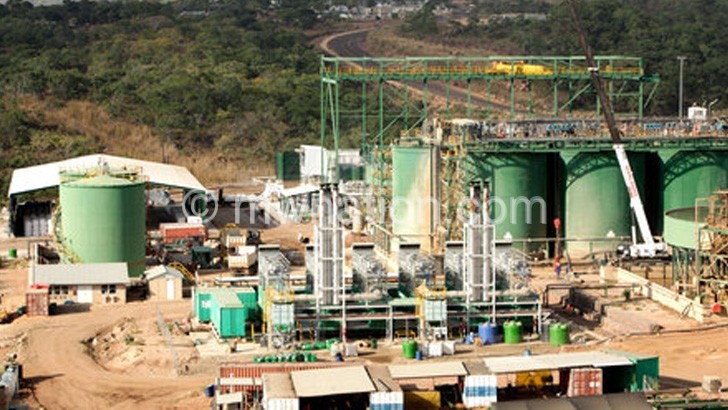Nuclear plants give hope for Kayelekera
Despite no pick-up in global uranium prices, Paladin (Africa) Limited (PAL), operators of Kayelekera Mine (KM) in Karonga, is banking on the opening of nuclear plants for a possible re-opening of the mine.
KM was put on care and maintenance in February 2014 after global uranium price plunged to around $35 a pound, which was not sustainable for the mine to continue operating.

According to information posted on www.world-nuclear.org, there are some 440 nuclear power reactors operating in 30 countries plus Taiwan while 50 power reactors are being constructed in 13 countries, notably China, India, United Arab Emirates (UAE) and Russia, which gives hope for a pick-up in prices.
PAL says KM needs a break-even price of $60 per pound as it costs about $40 per pound to produce uranium at the mine.
However, uranium price forecasts are pegged at an average of $26.10 per pound in fourth quarter (Q4) (October to December) of 2018 and $33.50 per pound in Q4 2019, according to an analysis by investingnews.com.
In an interview on Friday, PAL consultant and senior adviser Grain Malunga said while uranium prices have not moved, the miner is also banking on possible deals with sole uptakers aside from the reactors in the offing.
“We are still watching the market or if anybody comes in as a sole uptaker of uranium and agree on better price, we can start production.
“We are watching certified buyers, those that are agreed by international atomic agency, if they can come fourth with good priced deals,” he said.
In its half-year financial results for the six months ending December 31 2017, Paladin Energy Limited registered a 33 percent decrease in sales volume from $55.1 million (K40.3 billion) in 2016 to $36.8 million (K26 billion) in 2017 as a result of a 16 percent decrease in realised sales price and a 20 percent decrease in sales volume.
Paladin also reported a gross loss of $17.4 million (K12 billion) in 2017 from a gross loss of $17.8 million (K13 billion) in 2016.
Commenting on a possible re-opening of KM in an earlier interview, Malawi Confederation of Chambers of Commerce and Industry (MCCCI) chief executive officer Chancellor Kaferapanjira said rather than retrenchment of employees and loss of foreign exchange which the country has suffered over the years as a result of the closure of the mine, there were a number of indirect economic costs to the country’s economy.
Economist Gilbert Kachamba said if the mine reopens, it will help in reducing unemployment as activities at the mine create many jobs for the locals.
“For the economy to get maximum benefits from the mine, government must make sure that everything due to government is collected from Paladin,” he said.
At the height of production at KM, the mining sector used to contribute about 10 percent to the gross domestic product (GDP), according to the Malawi Government Annual Economic Reports.





